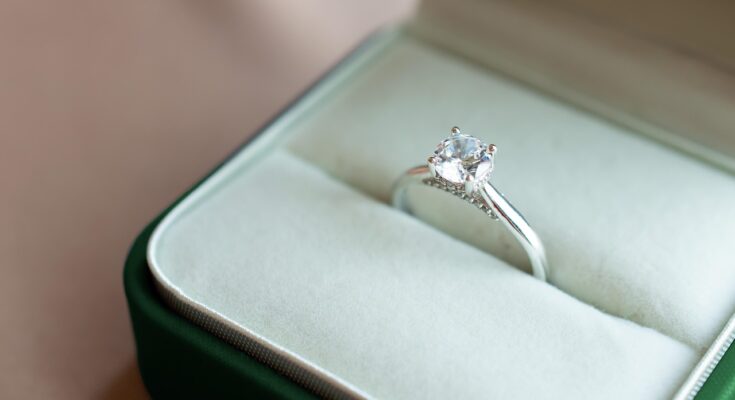ZonaJakarta – When we think of diamonds, we often picture engagement rings, red carpet glamour, or luxury gifts.
But beyond the sparkle and sentiment, some people wonder:
Can diamonds be a smart investment?
Can they actually grow your money the way gold, property, or stocks can?
The answer isn’t a simple yes or no. So let’s explore it—from the good side, the risks, and what you need to know before you buy diamonds as a form of investment.
Why People Think Diamonds Are a Good Investment
Diamonds have long been seen as a symbol of wealth and power. Kings wore them in crowns. Billionaires collect rare ones. The appeal is timeless.
Here are some reasons why diamonds seem like a good place to park your money:
1. Portable Wealth
Diamonds are small but very valuable. You could hold a million dollars’ worth in the palm of your hand. That makes them easy to move, carry, or hide, unlike houses or gold bars.
2. Durability
Diamonds last forever—literally. They don’t rust, rot, or fade. If stored properly, they can be passed down for generations without losing their quality.
3. Rarity of Certain Stones
Some diamonds are truly rare—especially colored ones like pink, blue, or green diamonds. These stones are limited in supply and sometimes fetch higher prices over time.
4. Cultural and Emotional Value
Many people buy diamonds for weddings, anniversaries, or important milestones. This emotional demand helps keep diamonds valuable, no matter the economy.
But Here’s the Reality: Not All Diamonds Gain Value
Just because diamonds are expensive doesn’t mean they’re guaranteed to be profitable. In fact, most diamonds don’t go up in price—and some even lose value after purchase.
Let’s look at the challenges:
1. Resale is Difficult
Buying diamonds is easy. Selling them is hard. Most buyers—including jewelry stores—won’t pay full price for a used diamond. You might get back only 30–60% of what you paid.
2. Retail Markup is High
Jewelry stores add huge markups. So if you buy a $10,000 diamond ring, the actual diamond may be worth much less without the brand and setting.
3. Not All Diamonds Are Rare
The truth is: white, clear diamonds are not as rare as they seem. With modern mining and lab-grown diamonds, supply has increased. That means prices can stay flat or even drop over time.
4. Value Depends on Many Details
A diamond’s value is based on the 4 Cs—cut, clarity, color, and carat. Even small differences in one of these can change its price a lot. If you don’t know what you’re buying, you could easily overpay.
So, Can You Still Make Money with Diamonds? Yes, but with Conditions
If you want to invest in diamonds, you need to treat it like a serious business—not just a fancy purchase. Here are a few tips if you’re serious about it:
1. Focus on Rarity
Invest only in rare diamonds—such as high-carat fancy colored diamonds (pink, blue, vivid yellow). These are limited in the world and usually have a higher chance of appreciating.
2. Get Certified
Always buy diamonds that come with a certification from a trusted lab (like GIA). This protects you from overpaying or buying something fake.
3. Work with Experts
Don’t just walk into a jewelry store. Connect with professional diamond dealers or auction houses who understand the market.
4. Think Long-Term
Diamonds are not good for quick profits. If you’re investing in them, you need to be ready to hold on for many years, sometimes even decades.
Diamonds vs Other Investments
Let’s compare diamonds with more traditional forms of investment:
Real Estate: Provides rental income and long-term value growth. Easy to track.
Gold: Universally accepted, easier to trade, steady price growth.
Stocks/Mutual Funds: Can grow quickly but come with higher risk.
Diamonds: Beautiful and rare, but hard to sell and requires expert knowledge.
If you want a beautiful item with emotional value that might increase in worth, diamonds are a decent option. But if you want stable, measurable returns, diamonds aren’t as reliable as other options.
Final Thought: Investment or Luxury?
In the end, it depends on your goal.
If you’re buying diamonds to celebrate love, family, or legacy, that’s priceless. And yes, they may still carry value years from now.
But if your main goal is to grow money or build wealth, diamonds shouldn’t be your first choice. They’re better seen as a luxury purchase with possible investment potential—not the other way around.
So… are diamonds a good investment? Only if you really know what you’re doing—and you’re in it for the long run. (*)




